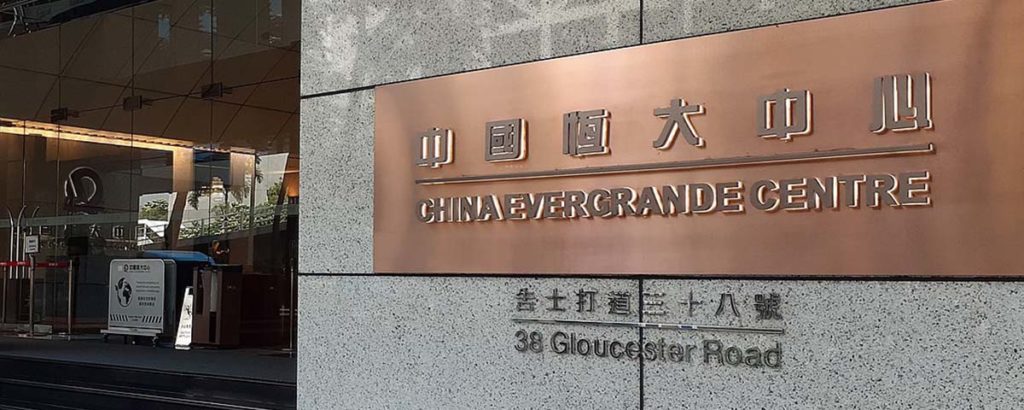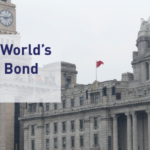Evergrande Explained

Executive Summary
- China real estate mega developer Evergrande sparked cries of “China’s Lehman Moment” in the Western media when it postponed a scheduled debt repayment.
- Neither a disorderly default nor a complete government bailout are likely. The most likely outcome is a government-facilitated debt restructuring, which appears to already be underway
- Evergrande’s story is intertwined with the story of China’s ongoing economic transformation and shift away from real estate investment towards investment in growth industries such as technology and consumer products.
- The CNY-denominated bond market is signficantly less exposed to Evergrande than China's USD-denominated bond market.
Introduction
Investors worldwide have been eyeing the difficulties China’s second largest property developer, Evergrande, is having paying its debts. The fallout from the company’s restructuring, the specifics of which are still in the works, has had a broad impact on global commodities, equities, and bonds. While the extreme scenarios have dominated the conversation, we expect there to be a more moderate resolution.
Evergrande’s woes of late have not turned out to be China’s “Lehman Brothers moment,” as some media sources suggested. Evergrande will join the ranks of firms including Fosun, Anbang Insurance, and HNA Group, which were also mischaracterized as tipping points for China’s economy in the past. However, the developer’s trouble does represent a pivotal moment for China’s capital markets, demonstrating their importance to the global financial system and that China is no longer an emerging market. For Asia’s high yield bond market, it could represent a policy tightening event that may lead to enhanced risk management among other real estate developers in the region, whose balance sheets are already strong.
What Happened?
The Evergrande story is years in the making. Evergrande has been through many business cycles over the past decade and has come close to defaulting before. The property developer sought to capitalize on the construction boom in China, which was bolstered by intense economic growth, easily accessible credit, and the fastest urbanization in human history.1 Homebuyers used leverage to purchase properties being developed by the firm. In turn, the firm borrowed heavily to finance those projects.
Real estate investment accounts for nearly 60% of Chinese household savings compared to 33% in the United States.2 This resulted in a situation where even middle and lower-middle-class households were purchasing one or more investment properties in addition to their own homes, many of which sat empty. As such, Evergrande saw extreme demand for its projects. Chinese households, lacking an alternative, channeled their savings into real estate. This resulted in inflated prices for real estate.
China’s capital markets have come a long way since Evergrande was founded in 1996. Chinese households now have a wide array of financial assets available to them. The Shanghai and Shenzhen Stock Exchanges now boast a total market capitalization of over $11 trillion.3 Furthermore, these markets are now liquid, modernized, and are beginning to invite investment management services provided by foreign firms.
Nonetheless, it appears that Chinese households have continued to focus on real estate rather than diversifying risks. As a result, the government has implemented new regulations that are making it more difficult to speculate on real estate and easier for investors to enter the stock market. At the end of 2020, China’s banking regulators announced caps on real estate lending. This sent a strong signal that “housing is for living, not speculating,” a statement Xi Jinping made at the 19th Party Congress in 2017.4
Investment continues to grow in real estate. However, between the government’s nudging towards securities markets and the expanding opportunities and maturity of the traditional markets, we should see the complexion of Chinese retail investments continue to diversify
Evergrande has current liabilities worth $310 billion, approximately $90 billion of which is owed to creditors, while the rest is owed to suppliers and homebuyers for down payments on projects that were delayed by the pandemic and may not proceed under the current environment. The latter two groups will likely be prioritized by the government in any restructuring plan to avoid social unrest.

The CNY-denominated bond market is little exposed to Evergrande’s debt while the USD-denominated bond market in Asia is more exposed, at 2% of high yield.

Evergrande made a $35.9 million coupon payment to CNY bondholders on Thursday, September 22nd. However, the firm still has $700 million in payments due through January, mostly to USD bondholders. The company will have to negotiate with USD creditors to make these payments in order to stave off a default.
We believe that neither a disorderly default nor a complete government bailout are likely. The most likely outcome is a government-facilitated debt restructuring, which appears to already be underway. The government has stressed that Evergrande’s debt should be resolved through a market-oriented approach while preventing systemic risks in the process and ensuring stable operations at Evergrande’s projects. While the government will not guarantee Evergrande’s debt, it will facilitate restructuring and bankruptcy proceedings. All legal proceedings against the company have already been centralized in a court in Guangzhou. Furthermore, the government is corralling banks to form a creditors’ union.
Takeaways
Evergrande’s story is intertwined with the story of China’s ongoing economic transformation. Investors in emerging markets often lean on real estate to passively capitalize on a high rate of economic growth. However, shifting market dynamics are causing China’s savings mix to increasingly resemble a developed market. Evergrande’s recent trouble is a symptom, not a cause, of this new reality. China’s future growth will be supported by industries such as internet services, information technology, health care, and consumer products. Furthermore, China’s public will be taking advantage of investing in growing companies, not only housing, as seen in traditional developed markets.
The restructuring of Evergrande will be an important test for China’s still developing bankruptcy laws. If successful, the government’s actions here will serve as an example for future cases and even other Asian governments with fledgling bankruptcy and default provisions.
Conclusion
Evergrande’s restructuring was a long-time coming and is a symptom, rather than a cause, of China’s ongoing economic transformation. While the developer’s uncertain future has sent shockwaves through global commodity, fixed income, and equity markets, it may ring in a new age of Asia investing.
Citations
- Bloomberg Businessweek. “Evergrande Debt Crisis Is Financial Stress Test No One Wanted,” Bloomberg. July 22, 2021.
- Data from CICC Research as of February 9, 2021.
- Data from World Federation of Exchanges as of January, 2021.
- Wilson, Barry. “Xi Jinping says houses are ‘for living in, not speculation’. But is Hong Kong listening?” South Morning Post. November 12, 2017.
Definitions:
High Yield: The term ‘high yield’ refers to the quality of a company’s credit. To be considered a high yield issue, the company must be rated lower than ‘BBB’ by Standard and Poor’s or Moody’s. Anything ‘BBB’ or above is considered investment grade.
China CNY Onshore Bond Market: All debt securities traded publicly in China and denominated in Renminbi (RMB or CNY), the official currency of the People’s Republic of China.













